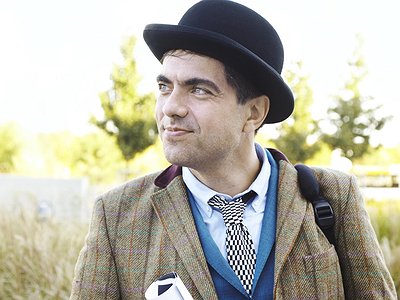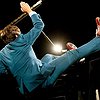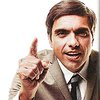Part 3
With more and more musicians creating than ever and more and more of these creations being released, what does this mean for you as an artist in terms of originality? What are some of the areas where you currently see the greatest potential for originality and who are some of the artists and communities that you find inspiring in this regard?
I find that one of the new developments in our age is the idea of the “hive-mind”, which wasn’t possible before modern media and the Internet. In earlier times being creative in your free time usually meant that you were painting pictures or composed poems that nobody but a few close friends were able to see, ever. Today you can post these things on the Internet and might get a much bigger audience. But the more creative people there are out there, the more they tend to do similar things. Daring individual efforts have actually become rarer these days, even though the number of creative people has risen. A lot of artists are also happy to be part of something bigger than themselves, they like to identify with a style, a label, a community. I have to admit that I am not so much interested in that – of course I use the Internet as a resource, like everybody else, but I do firmly believe that there is a lot to be said for the individual effort, the effort that doesn’t follow any kind of mass or even elitist taste, that is deeply eccentric, that is deeply unexpected. This is why I compose art music, because it is “atopical”, out of place, between genres, in the huge nether realm that exists only in our heads, that is not dictated by pre-fab sound modules, hive minds and hype. Otherwise I would work – together with hundreds of other composer drones – for somebody like Hans Zimmer and would be happy with that. But that simply doesn’t turn me on.
How would you define the term “interpretation”? How important is it for you to closely work together with the artists performing your work?
Even though it is of course ideal to work with the musicians who perform your music before a performance it is also important to let go as a composer. You might not always be able to be there when your music is played, and people will have to create the music from whatever information you have given them in your score. There will be misunderstandings, deviations, creative mistakes – and that is the beauty of the ephemeral art called music. Even though I have a clear vision of how I want my music to be played I might be positively surprised by a new look at it. This is why I never understood the idea that there is only one right way to play a piece of music. Thankfully – like love – music is always new.
The effect of a piece doesn't merely depend on the performance of the musicians, but also on the place it is performed at. How do you see the relationship between location and sound? In how far do you feel the current system of concert halls is still the right one for your music – or for contemporary music in general?
I would agree with the criticism often directed at the contemporary way that classical music is usually presented. To me it seems like this: throughout music history the way music was presented constantly changed, sometimes dramatically. Composers, musicians and sponsors of music were part of this change. Then – somewhere in the middle of the 19th century – it just stayed as it was: today we present classical music pretty much the same way it was presented in 1850, down to the tuxedos and the bourgeois attitude. This cannot be right – too much has happened in the last 160 years. The solution is not necessarily to play in clubs or abandoned factories but instead to constantly rethink the role that music has in our society, what listeners I want to have, and what I want to tell them and why. Classical and contemporary music have become fringe culture because they have forgotten about the necessity of renewal and change. Now we might use that fringe position to do more exciting stuff than the mainstream ever allows.
What's your view on the role and function of music as well as the (e.g. political/social/creative) tasks of composers today - and how do you try to meet these goals in your work?
If I look at what happens currently: how caricaturists are shot, artists imprisoned or held captive by their own government, how art is increasingly censored, how people more and more don’t dare to speak out, how they are manipulated, how much repression is created by misunderstanding tolerance and political correctness and how it creates an atmosphere of fear … then I would say political art is more important than ever. For me this has become a big responsibility, and I don’t want to be in a little cloud-cuckoo land, working at my little abstract divertimentos for my little contemporary music circles while the world around me is going downhill. Music cannot change the world alone, but – like any other form of communication – it can instigate change. Art must have become very powerful, because so many seem to fear it.
Do you have a musical vision that you haven't been able to realise for technical or financial reasons – or an idea of what music itself could be beyond its current form?
Recently I have been developing a theory of “atopical” music. “Atopical” means “without defined place” or “extraordinary”. For me that is the place outside of the borders of style or genre (that define our musical world more than ever). Atopical music is a free space, full of wild and unexpected ideas, they might be sweet, bitter-sweet, shocking, transgressive, provocative. This is the non-place I want to be with my music, because there I can have the most freedom. So my vision would be to increasingly work in that space. Apart of that I am happy to be always have more ideas than I personally can realize.
Find out more about Moritz Eggert on his website or follow his ideas, thoughts and opinions on his personal blog.







